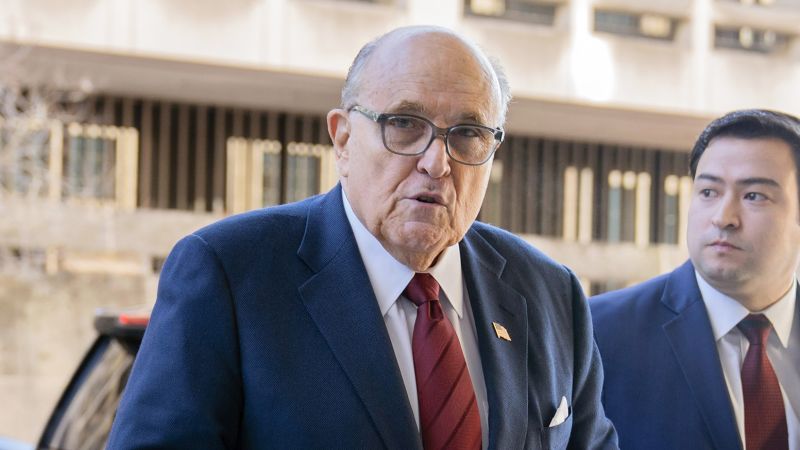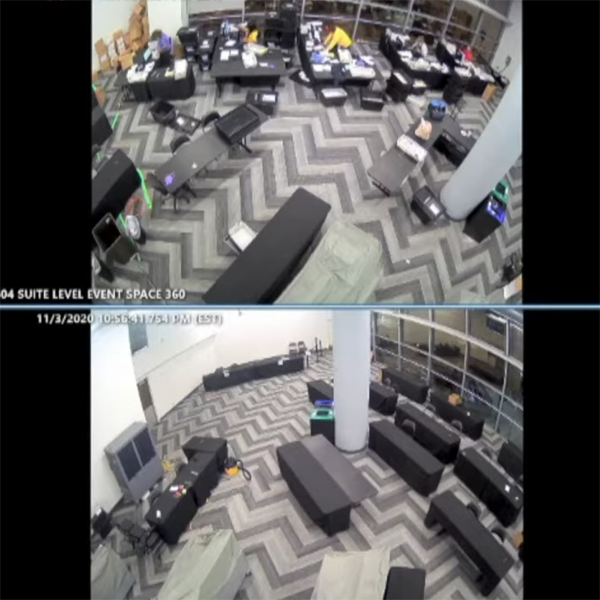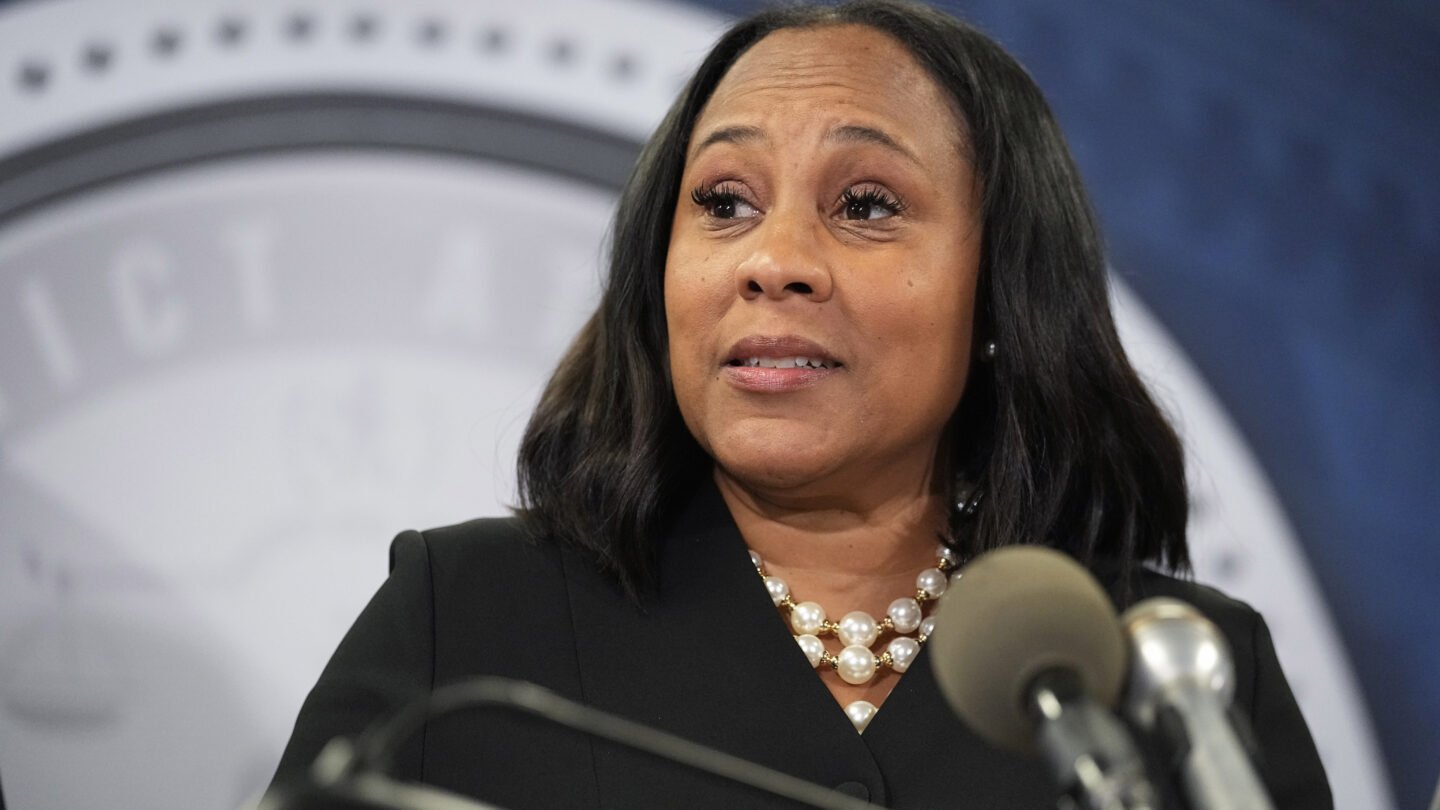Concern about the “inflammatory” use of the term “Cop City” was one reason behind Georgia Tech’s censorship last month of a student journalist’s first-person account of critical reporting on Atlanta’s controversial public safety training center, internal emails reveal.
The emails read like a script for a sitcom about self-important bureaucrats and butt-covering bosses screwing up the earnest work of a college department’s staff. Some of the officious officials are seen scrambling into the wee hours, struggling to think of a way for censorship of a student journalist to not look like censorship – all while the school was planning, just days later, to honor a famous and powerful CNN journalist with a $100,000 prize for “social courage.”
It’s all pretty funny, except the joke is on everyone at Georgia Tech and the public served by a state school’s mission to discover and disseminate knowledge. Silliness is a well-worn path for agents of the state to become censors, as they did in this case. The emails reveal an intent to suppress controversy and mislead the public, which should heighten concern about the politicization of state schools and the establishment’s pattern of attacking any dissent about the training center.
 100vw, 276px” data-lazy-src=”https://i0.wp.com/saportareport.com/wp-content/uploads/2023/04/alex-ip.jpg?resize=276%2C276&is-pending-load=1#038;ssl=1″ srcset=”data:image/gif;base64,R0lGODlhAQABAIAAAAAAAP///yH5BAEAAAAALAAAAAABAAEAAAIBRAA7″/>Alex Ip, founder and editor-in-chief of The Xylom.</p>
<p>As I previously revealed, the controversy involves the work of Alex Ip, an environmental engineering undergrad who created an independent news site called The Xylom as an outgrowth of a science blog inspired by his classwork. He has since graduated and is headed to the Massachusetts Institute of Technology (MIT) as a grad student in science writing, in part on the strength of his Xylom work. In March, he was invited to submit a post about his reporting on the training center by “Serve-Learn-Sustain” (SLS), a campus-wide program where students get practical experience in helping to “create sustainable communities.” </p>
<p>On April 17, Ip’s commentary was posted on a section of the SLS website and also was distributed in an SLS newsletter. The post described how his coursework led to an interest in the training center controversy and its environmental and social justice issues. It specifically noted an article he wrote that fact-checked City of Atlanta claims about the project, which he believes led a press release with such claims to be quietly “scrubbed” from the City website. “You don’t do that unless you know that you are on shaky factual and moral ground,” he wrote of the City’s press release deletion, adding that the action “has only made me more motivated to continue to cover ‘Cop City’….” The term “Cop City” is one coined by the Defend the Atlanta Forest protest movement to oppose the training center.</p>
<p>Late that night, SLS informed Ip that college public relations officials were unhappy. The PR people wanted the post “revised” to make it clear that it was his opinion, not Georgia Tech’s. But not only that – they had new language that removed “Cop City” and basically any detail of interest. And they wanted the direct link to the original Xylom article removed. Or else SLS must delete the whole post.</p>
<p>Linking directly to the post, with its inflammatory title, and using the term ‘Cop City’ in the overview is very concerning.</p>
<p>Louise M. Russo, interim vice president of Institute Communications and assistant vice president of Strategic Marketing, Georgia Tech</p>
<p>Given the “Godfather”-esque offer he could not refuse, Ip agreed – but then immediately publicized the changes on Twitter, where many users decried them as academic censorship. </p>
<p>Georgia Tech at the time gave me explanations that did not really explain anything. Blair Meeks, the assistant vice president of external communications, claimed a law – the exact one was never cited – makes any Georgia Tech website the official voice of the school and the state. He also cited an apparently new IT policy that reviews and restricts the posting of third-party content. How exactly Ip’s post violated those supposed rules and how those rules can possibly comport with or override the U.S. and Georgia constitutions’ free-speech guarantees are questions he never answered.</p>
<p>So in the weeks since then, I obtained hundreds of internal emails via a Georgia Open Records Act request to see what the officials were really saying to each other. They tell a classic story of how a censorship machine starts running and why Georgia Tech better yank out the plug right now before a civil rights lawsuit does it for them. You have PR and marketing people assuming dictatorial powers under petty bureaucratic policy, a rogue “committee” of censors killing content based on speculative problems and pure political discomfort and staff members enlisted as spies ratting out suspicious publications. </p>
<h2 class=)
The emails show that the IT policy and notion of any website being an official school voice were indeed cited – but as a bludgeon against content officials unilaterally decided, without any external complaint, was “inflammatory” and had to go, especially the term “Cop City.” Far from a sober policy review, what transpired was an instant panic involving at least 15 different Georgia Tech officials and staff members, many of them brainstorming ways to kill or alter the post as late as 4:55 a.m.
The ad-hoc ideas included killing the post outright and having an “access denied” page – which apparently briefly happened by accident in the comical frenzy – or tricking readers into going to a different interview with Ip posted on the site years before. The less extreme censorship of watered-down language came only after pressure from SLS staff that Ip should be involved and that they risked a censorship controversy. Ip’s own publicizing of the post also made it impossible for the officials to completely kill it, they complained.
The lead in suppressing the post was taken by Louise M. Russo, interim vice president of Institute Communications and assistant vice president of Strategic Marketing. A number of other high-ranking Georgia Tech officials were involved, including Meeks; Steven P. Girardot, vice provost for Undergraduate Education; Laurence J. Jacobs, a professor and senior vice provost for Education and Learning in the College of Engineering; Bert Reeves, vice president of Institute Relations; Steven Norris, director of media relations and social media; and Kathleen T. Gosden, chief counsel for Student Life & Academic Affairs. It appears that some of those officials are in a committee or working group for the IT policy that became one of the censorship mechanisms.
The saga began pleasantly enough on March 23, when SLS staff member Ruthie C. Yow invited Ip to write the post about his Xylom article. “It’s a brilliant piece and we would love to share it widely,” she wrote. On April 11, after Ip submitted the post that would be censored, Yow called it “gorgeous.”
On April 17, when SLS circulated Ip’s post as one of many in its email newsletter. The trouble appears to have begun when the newsletter was forwarded without comment to Girardot, the vice provost, by Leslie N. Sharp, the dean of libraries. Jacobs, the senior vice provost, later forwarded the newsletter to Russo with the comment, “Just a heads-up for situational awareness in case you have not seen it.”
Russo, a career marketing and brand-management executive, responded by starting a pattern of viewing Ip’s post through her particular lens. “This is indeed of concern as it conflicts with the acceptable use policies in my assessment… of course the student is welcome to draft this content on their own but, given that it’s on a gatech [sic] site, it’s a reflection of the institute,” she responded to Jacobs.
An hour later, Russo emailed several officials to say that she had spoken further with Jacobs and Gosden, the Georgia Tech attorney. “Kathleen and I are in agreement that this content should be removed from the site, as anything on a Georgia Tech-hosted website is considered speaking on behalf of the Institute,” Russo wrote, adding, “…Kathleen’s team has been doing more education on the distinction between institutional speech and personal speech; this may be a good opportunity to have that conversation.”
She offered no evidence that anyone was confused that a post about a student’s independent work was speaking on behalf of the school, nor any explanation of how quotes and other third-party material could be legally or logically viewed as an official statement. Indeed, later comments from Russo and Jacobs make it clear that the real problem was disagreement with the content of the post.
 100vw, 780px” data-lazy-src=”https://i0.wp.com/saportareport.com/wp-content/uploads/2023/05/russo-on-inflammatory-and-avoiding-obvious-redirect-Copy.png?resize=780%2C67&is-pending-load=1#038;ssl=1″ srcset=”data:image/gif;base64,R0lGODlhAQABAIAAAAAAAP///yH5BAEAAAAALAAAAAABAAEAAAIBRAA7″/>An excerpt of an April 18 email from Georgia Tech official Louise M. Russo about Ip’s post.</p>
<p>“Linking directly to the post, with its inflammatory title, and using the term ‘Cop City’ in the overview is very concerning,” Russo wrote at one point. </p>
<p>Girardot at one point informed SLS staff that, in the communication’s department view, “the phrase ‘Cop City’ in and of itself is a concern.” </p>
<p>Meanwhile, Russo’s plan to kill the post was stymied by the fact that it had already been publicized. “It’s already been pushed out via newsletter and the student’s social media so we needed a solution that doesn’t have it going to an access denied page,” Russo wrote to Reeves, the vice president for Institute Relations. (In the speed and confusion, a lower-level communications staffer “jumped the gun” and pulled down the post briefly, Russo said.)</p>
<p>That “solution” was to redirect the newsletter link to an old 2021 interview with Ip elsewhere on the SLS website, which would include a new, bland introduction and a link to the general Xylom site – not the controversial article.</p>
<p>“That avoids it appearing (incorrectly!) as censorship while also separating the institute from the editorial nature of the content,” wrote Russo.</p>
<p>“This makes it feel less like an obvious redirect and provides on-page content of value for people who click through,” she added later. “… Being frank, it gives me pause to link to the site at all, but, in this case, it is an appropriate compromise since it involves a student and the story was already published and pushed out.”</p>
<p>Meanwhile, SLS Director Jennifer Hirsch and her staff were working with a mix of exasperation and confusion on a revision of the original post – which they believed to be the solution. Hirsch also pushed back on the PR officials’ unilateral moves by insisting on Ip’s knowledge and input. She suggested a new wording with the headline, “Georgia Tech Student Publishes Article on Cop City.” And, she wrote, she wanted to send it to Ip, “as I don’t feel comfortable changing it without his permission. … I would like to see what he suggests.” </p>
<p>… I mentioned the option of running something on ‘the other side,’ but as expected that didn’t go over at all.</p>
<p>Jennifer Hirsch, director, Georgia Tech Serve-Learn-Sustain</p>
<p>Russo and other officials embraced the idea of contacting Ip, which Hirsch did late on April 17. She told him the post was “attracting attention — which I see as a good thing” – but that the communications department wanted to change it. She wanted to be sure that “you’re okay with us revising the post (the only other option is to remove it from our website)….”</p>
<p>However, the upper-level officials did not agree with Hirsch’s proposed new wording. They were still pushing the plan to misdirect readers to the old interview. More comedy ensued as SLS staff failed to understand the bizarre misdirection idea and continued to believe they were merely editing the existing post. </p>
<p>“Sigh. Can’t believe they also want a note on the old post,” wrote Hirsch to her staff. “I also don’t know how we are supposed to run it without a link to Xylom?”</p>
<p>“We can’t run it without the link to the actual article,” responded SLS staffer Kristina G. Chatfield. “It makes no sense that way. The whole point was to link to his article.”</p>
<p>The emails do not make clear exactly what caused the officials to relent somewhat on April 18 and allow a heavily edited version of the post to remain – including a link to the Xylom article that appears to have been restored some hours after the primary edit. But in emails to her staff, Hirsch described a discussion about content and a warning about censorship controversy.</p>
<p><img data-attachment-id=)
After reading the internal emails, I contacted the key players with a bunch of questions. Does Georgia Tech have any current financial relationships with the City, the Atlanta Police Department or the Atlanta Police Foundation, as it has in the past? What are the legal grounds for claiming that anything on a Georgia Tech website is official school/state speech? Did any of them at any point raise concerns about the constitutional and academic-freedom rights of faculty, staff and students?
Meeks called me to say that no one would be answering, including him, though he threw out a couple more speculative legal claims. Georgia Tech could be on the hook for libelous speech on its websites, he said, but acknowledged there was no such claim about Ip’s post. He cited the widely misunderstood legal concept of “shouting fire in a crowded theater” – a shorthand for speech that creates an imminent danger. He didn’t laugh like I did when I pointed out that this was more like shouting “Cop City” in a crowded theater.
It’s certainly reasonable for schools to have policies on vetting materials for publication and for avoiding confusion between individual and institutional speech. (Probably not coincidentally, some of those concerns are elements of a University of Georgia academic freedom policy update that was circulating for review –including among these officials – several days before this incident.) It’s not at all reasonable for such policies to become an excuse for viewpoint-based discrimination, academically dishonest misdirection, and the other unpleasantries that happened in this case. Marketing departments certainly should not be deciding academic and journalistic standards. And the context of sheer establishment pressure against training center dissent is a factor that should not be ignored and must be opposed.
Six days later, Georgia Tech honored CNN journalist Christiane Amanpour with the annual Ivan Allen Jr. Prize for Social Courage. In what I must assume – based on the commentary from Meeks, Russo and others – is the official statement of Georgia Tech and the state of Georgia, the school website quoted her and President Ángel Cabrera about the benefits of controversial journalism.
“We’re on a university campus, and around campuses across the United States there has been a tendency toward less openness and more canceled culture,” the website press release quotes Amanpour as saying during her visit. “People are shying away or not wanting to hear things that they don’t agree with. I think that’s a shame. And I think that’s a problem in terms of where else you’re going to get this opportunity. When else in your life are you going to get the opportunity to hear a whole range of things that you may or may not agree with?”
“Christiane refuses to be neutral in the face of horror because, I’m quoting you now, Christiane, ‘When you’re neutral, you become an accessory,’” said Cabrera on the website.
Perhaps the job of Georgia Tech PR people should be promoting the work of their better students, not plotting to censor it. Perhaps they should laud the bravery of student journalists as well as those who offer the reflected glory of TV shows.
Meanwhile, Ip walked across the stage at Bobby Dodd Stadium earlier this month and got his diploma. “As a proud Georgia Tech graduate,” he said, “I will continue applying what I’ve learned in college to do accurate, in-depth, nuanced environmental justice reporting at The Xylom, MIT and beyond.”









